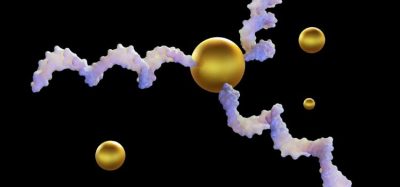Roche agrees to develop oncology small molecule inhibitor
Posted: 14 July 2023 | Catherine Eckford (European Pharmaceutical Review) | No comments yet
An agreement to obtain a global license for KSQ Therapeutics’ small molecule USP1 inhibitor, which has potential to treat a variety of cancers, has been signed by Roche.


KSQ Therapeutics, Inc. has entered into a global license and collaboration agreement with Roche for the development and commercialisation of KSQ-4279. The drug candidate is a first-in-class, potent, and selective small molecule inhibitor of USP1.
USP1 is a protein that regulates DNA damage response (DDR) using a unique approach, for example, when compared to PARP inhibitors.
Advancing a novel oncology treatment
Regulating DDR with a small molecule inhibitor
“DDR is a promising and emerging area of research in oncology,” commented Dr James Sabry, PhD, Global Head of Pharma Partnering at Roche. “We are excited to collaborate with KSQ on their novel inhibitor of USP1 as a potential new treatment option for patients with significant unmet medical needs across a range of cancers.”
Chief Executive Officer for KSQ Therapeutics, Qasim Rizvi, stated that the company believes its small molecule drug candidate “has incredible potential to help patients with a variety of solid tumours based on the strong preclinical data we have seen to date.”
KSQ-4279 is currently in a Phase I clinical trial in patients with advanced solid tumours. The innovative treatment is being tested as a monotherapy and in combination in this dose-escalation and expansion trial.
From 2024, Big Pharma company Roche will be fully responsible for development of the small molecule inhibitor. Under the agreement, KSQ will receive an upfront payment and will be eligible to receive additional milestone and royalty payments.
Innovation in small molecule drug development
A market report has noted that the rising demand for small molecule drugs is being driven by their lower cost and easier manufacturing capability compared to biologics. The research also highlighted that between 2023 and 2033, the biotech sector is expected to see an annual growth rate of 4.8 percent. Additionally, accelerating advancement in research and technology in the biopharmaceutical sector is generating opportunities for the development of innovative small molecule drugs. Therefore, development of this novel small molecule inhibitor will contribute to this projected market growth.
Related topics
Anti-Cancer Therapeutics, Big Pharma, Biopharmaceuticals, Clinical Development, Clinical Trials, Drug Development, Industry Insight, Research & Development (R&D), Technology, Therapeutics









